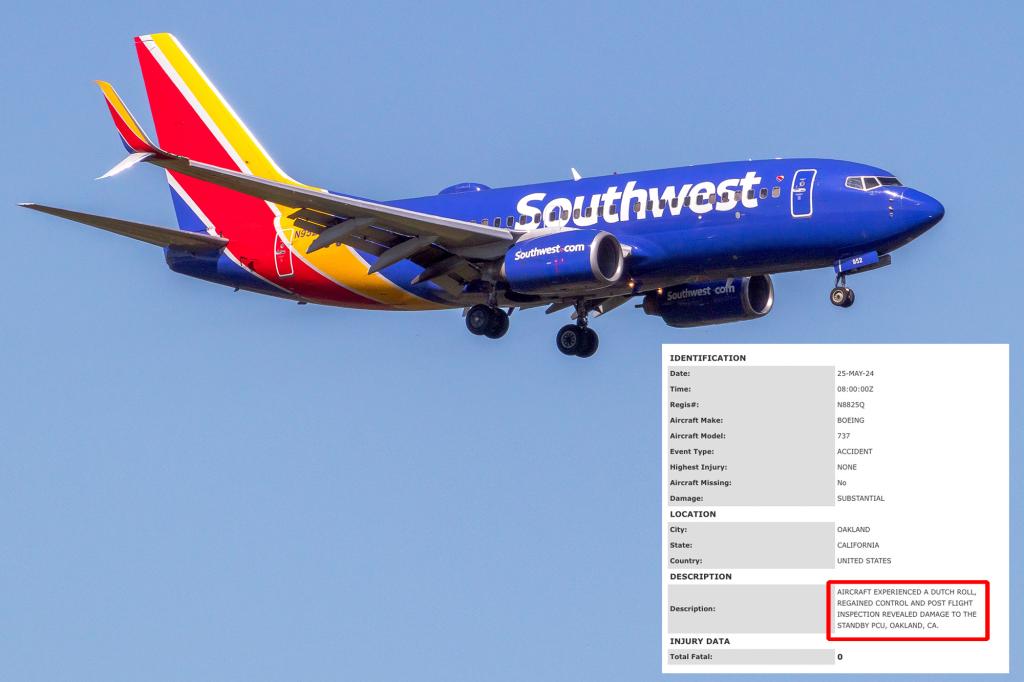A Southwest Airlines Boeing plane traveling from Phoenix to Oakland experienced a rare Dutch roll at 32,000 feet in the air, causing significant damage that left the aircraft out of service. The incident involved Southwest flight N8825Q, a Boeing 737 carrying 175 passengers. The Dutch roll phenomenon caused the plane’s tail to wag left and right, resulting in the wings rocking from side to side.
Despite the major damage caused to the plane during the Dutch roll incident, the pilots were able to regain control of the aircraft and safely land it in Oakland. Following the incident, the Federal Aviation Administration launched an investigation to determine the cause of the Dutch roll and the extent of the damage to the Boeing 737. The safety of the passengers and crew on board was the utmost priority during the incident.
Southwest Airlines took the damaged plane out of service after the Dutch roll incident and began assessing the extent of the damage. The airline prioritized ensuring the safety and well-being of its passengers and crew, working to prevent similar incidents from occurring in the future. Southwest Airlines employees worked diligently to repair the aircraft and bring it back into service as quickly as possible.
The Dutch roll incident involving the Southwest Airlines Boeing plane highlighted the importance of pilot training and response in high-stress situations. The pilots’ ability to regain control of the aircraft and safely land it demonstrated their skill and professionalism in handling emergencies. The incident also underscored the value of thorough safety protocols and procedures in maintaining passenger safety.
The Federal Aviation Administration’s investigation into the Dutch roll incident aimed to identify the root cause of the problem and prevent similar incidents from occurring in the future. By addressing any potential safety issues and implementing necessary changes, the FAA and Southwest Airlines worked to ensure the safety and well-being of passengers and crew. The incident served as a reminder of the importance of ongoing safety monitoring and maintenance in the aviation industry.
In conclusion, the Dutch roll incident involving the Southwest Airlines Boeing plane was a rare occurrence that resulted in significant damage but also demonstrated the professionalism and skill of the pilots in safely landing the aircraft. The incident prompted investigations by the FAA and Southwest Airlines to determine the cause of the Dutch roll and prevent similar incidents in the future. The safety and well-being of passengers and crew remained the top priority throughout the incident, highlighting the commitment of the airline and aviation authorities to maintaining high safety standards.


